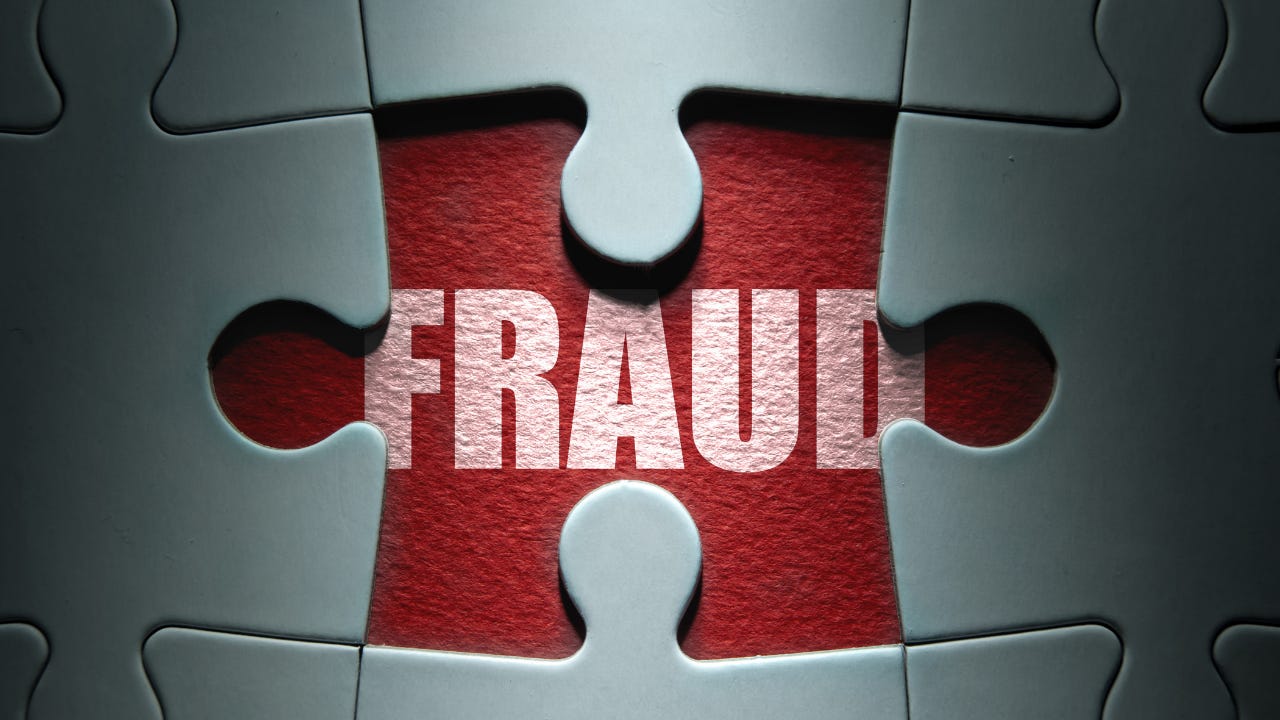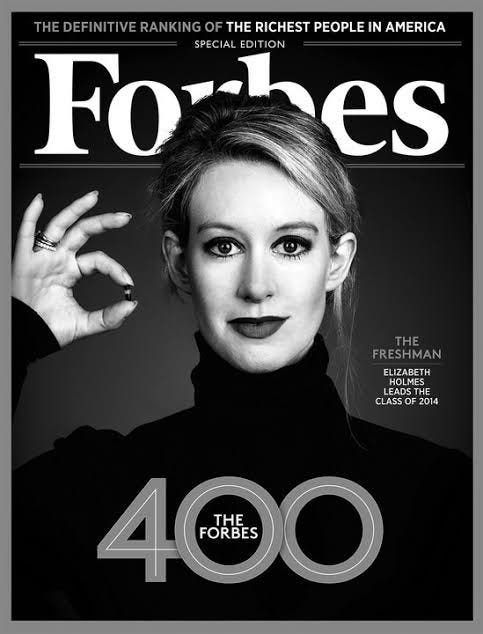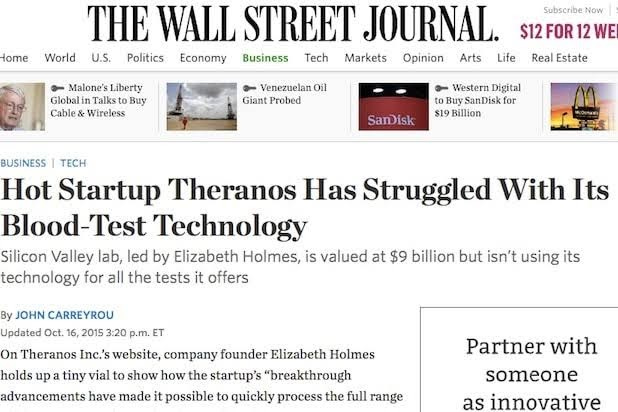🕵🏻♀️ Committing Startup Fraud Theranos Style
The Theranos fraud is an interesting case study that highlights the differences between a promising start-up and bare-faced fraud. ReadOn to find out.
If you've been watching Shark Tank you will know that as a startup founder the first thing you need to be is a good salesman.
Your pitch is everything. It's how you get money to convert your ideas into reality. And for this, you don't just need talent and data. You need storytelling, passion, charisma and conviction.
You know who else needs to have such character traits? Fraudsters.
And today we're going to tell you the tale of one such startup founder cum fraudster: Theranos’ Elizabeth Holmes.
Holmes was recently found guilty on multiple counts of investor fraud. She and her company stole over $140 million from investors. But money is nothing if you weigh in the actual implication of her action. People could actually lose their lives because of her.
Wondering how?
ReadOn!
The Theranos Story
The story begins in 2003 when Holmes was 19. She dropped out from Stanford to create her own startup venture, something that would revolutionise the world.
This story was pretty common in Silicon Valley, look at Steve Jobs and Bill Gates.
Plus Holmes’ cause was so noble that it was surely destined for success. She wanted to disrupt the $75 billion/year blood testing industry. She proposed a world where you could know what diseases or disorders you had without painful needles, without hospital lines, and without waiting for days on end. But how could she manage all this?
By creating a portable blood-testing machine that could diagnose everything that was wrong with you by taking just one drop of your blood.
Sounds amazing, right?
Theranos' investors thought the same. And these investors were not just common folks like you and me. The jaw-dropping list included:
Billionaire media magnate Rupert Murdoch (who owns the Fox Group). He invested around $125 million in the company. In 2017, he sold his stake for $1.
Oracle founder Larry Ellison
Alice Walton, the daughter of Walmart founder Sam Walton.
Henry Kissinger, the former US Secretary of State.
Betsy DeVos, former Secretary of Education.
They all put millions at stake to be a part of the health tech revolution. And that's not all. Theranos' list of board members was equally impressive. It included multiple former politicians and even a doctor!
Looking from the outside, the company looked perfect. But on the inside, there was utter chaos.
You see the machine on which the company's entire business model was built didn't work. Theranos was actually using regular machines and needles to provide data. Its machines weren't FDA approved and when other regulators asked for data about how they worked, Holmes just had two words for them: "Trade secret."
But people didn't know that yet and so Holmes was celebrated and labelled the "next Steve Jobs" (P.S. WeWork CEO Adam Neuman was also called the next Steve Jobs and look how that turned out.) In 2010, her company became a unicorn and in 2015, Holmes made the cover of Forbes and was even on Time Magazine's list of 100 Most Influential People of 2015.
She was basking in this glory, providing fake data to regulators and fake numbers to investors promising them untold riches until in 2015 a 22-year-old dared to reveal the truth.
The Bubble Bursts
Whistleblower Tyler Schultz, the grandson of a board member at Theranos, told the truth about the company to a journalist from The Wall Street Journal and down came the house of cards that Holmes had built.
Six years later she has finally been convicted (though not of all charges).
Looking back it’s easy to call Holmes a fraudster. But the reality wasn’t so black and white. You see, a "fake-it-till-you-make-it" mentality is very common in the world of startups. Theranos was no different.
What made Theranos different was Holmes’ refusal to accept reality. Her mission was more for herself than for the world. So when it failed, she could not accept it. She kept going with the game of lies, forgetting that her obsession could lead to the loss of lives.
This whole episode can serve as a lesson for both startups and investors. Founders should know when to call the time of death on their original idea and either adapt or exit.
Meanwhile, investors should also not be taken by anyone and everyone who has a great idea. What they need to look for is execution, data, and a working business model.
And this, reader, should serve as a lesson to you as well. The current unicorn and IPO boom may inspire you to invest in up and coming startups and companies. But you need to be extremely careful with these investments because even unicorns can fail miserably.
Now, the million-dollar question is, will this case actually make a difference in how major investors treat startups? Or will the FOMO continue?
Only time will tell…
P.S. If you want to know more about the whole saga, you can read Bad Blood: Secrets and Lies in a Silicon Valley Startup by John Carreyrou.
Share this with your friends via WhatsApp or Twitter and help them become financially smarter! See you tomorrow :)
You can also listen to our stories because the Revolution ReadOn podcast is live!! Here: you can catch it on Spotify, Apple Podcast or Amazon Music, Google Podcasts, Gaana and Jio Saavn.
If you are coming here for the very first time: Don’t forget to join us on WhatsApp to get daily updates! 👇





